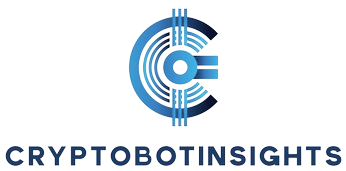The rise of artificial intelligence (AI) has revolutionized various industries, and finance is no exception. AI trading, also known as algorithmic trading, utilizes computer programs to analyze vast amounts of data and execute trades. But with this innovation comes a crucial question: is AI trading legal in the US? Understanding the legal landscape surrounding this technology is essential for individuals and institutions considering its application in their financial strategies.
Understanding AI Trading
AI trading algorithms, at their core, leverage advanced computational capabilities to analyze vast amounts of market data. These algorithms can swiftly identify patterns, trends, and anomalies that might go unnoticed by human traders. The speed and efficiency with which AI processes information contribute to its competitive edge, allowing for quick and precise execution of trades.
One of the key advantages of AI trading lies in its ability to adapt and learn. These algorithms continually evolve, refining their strategies based on new data and market conditions. This adaptability enables AI trading systems to stay agile and responsive in dynamic financial environments, potentially maximizing returns and minimizing risks.
However, the rapid evolution and complexity of AI trading also pose inherent risks. As algorithms become more sophisticated, there is a growing need for regulatory frameworks to ensure ethical and legal use. Striking a balance between leveraging the benefits of AI in trading and addressing potential pitfalls remains a challenge that both regulators and industry participants are actively addressing.
Regulatory Framework
Regulatory Framework for AI Trading in the United States encompasses a set of guidelines and standards established by regulatory bodies to govern the use of artificial intelligence in financial markets. Let’s delve deeper into the key aspects:
- SEC Regulations on AI Trading:
- The Securities and Exchange Commission (SEC) plays a pivotal role in overseeing the securities industry.
- SEC regulations aim to ensure fair practices, transparency, and investor protection within the realm of AI trading.
- Guidelines cover disclosure requirements, risk management, and the use of AI algorithms to prevent market manipulation.
- Compliance Requirements for AI Trading Firms:
- AI trading firms must adhere to specific compliance standards to operate legally.
- Compliance involves thorough documentation, regular audits, and transparency in algorithmic decision-making processes.
- Regulatory bodies may require firms to demonstrate the effectiveness of risk management protocols.
- Recent Legal Developments in the US:
- Ongoing legal developments reflect the dynamic nature of AI trading regulations.
- Amendments and updates to existing laws reflect the efforts of regulators to keep pace with technological advancements.
- Court decisions and precedents establish the legal boundaries and expectations for AI trading entities.
Understanding this regulatory framework is essential for both AI trading firms and investors, as it sets the parameters for responsible and legal use of AI in financial markets. Compliance with these regulations not only ensures the legitimacy of AI trading practices but also fosters an environment of trust and accountability within the financial industry.
Key Legal Issues
| Legal Issue | Description | Implications |
| Insider Trading Concerns | Unauthorized use of non-public information for trading | Legal repercussions, fines, and damage to market integrity |
| Market Manipulation and AI | Potential manipulation through algorithmic strategies | Regulatory scrutiny, reputational damage, legal actions |
| Transparency and Accountability | Lack of clarity in AI decision-making processes | Increased risk of legal challenges, calls for transparency |
- Insider Trading Concerns:
- Description: Insider trading involves using non-public information to gain an unfair advantage in the market.
- Implications: Violations can lead to severe legal consequences, including substantial fines and imprisonment. Additionally, such practices undermine the integrity of financial markets.
- Market Manipulation and AI:
- Description: AI trading strategies may inadvertently or intentionally manipulate markets, impacting prices or misleading other market participants.
- Implications: Regulatory bodies closely monitor for market manipulation. AI trading firms engaging in such practices may face legal actions, regulatory scrutiny, and damage to their reputation.
- Transparency and Accountability:
- Description: The lack of transparency in AI decision-making processes can be a concern, as it may be challenging to understand the logic behind algorithmic decisions.
- Implications: Calls for greater transparency and accountability from regulators and market participants. Firms need to establish clear mechanisms for explaining AI-driven decisions to ensure trust and compliance.
Addressing these legal issues is crucial for the sustainable and ethical development of AI trading. Regulatory bodies and industry stakeholders must collaborate to establish guidelines that strike a balance between fostering innovation and safeguarding the integrity of financial markets.
Ethical Considerations
Ethical considerations in AI trading delve into the broader implications of deploying algorithmic systems in financial markets. As AI continues to play a pivotal role in decision-making, striking a balance between innovation and ethical responsibility becomes paramount.
Balancing innovation and ethics involves addressing the potential biases embedded in AI algorithms. These biases may stem from historical data, reflecting existing inequalities in the financial system. Ethical AI trading practices prioritize the identification and mitigation of such biases to ensure fair and unbiased market participation.
Responsible AI trading extends beyond compliance with legal frameworks. It necessitates a commitment to transparency and accountability, ensuring that stakeholders, from investors to regulatory bodies, can understand and trust the functioning of AI systems. Industry efforts to establish ethical guidelines aim to foster a culture of responsible AI use, emphasizing the importance of aligning technological advancements with ethical standards for the long-term sustainability of AI trading in the financial landscape.
Future Outlook
The future of AI trading regulations is poised for evolution. Regulatory bodies recognize the need to adapt to the dynamic nature of technology and are expected to introduce amendments and new guidelines. Anticipated changes may include:
- Enhanced Oversight: Regulators may implement more robust oversight mechanisms, incorporating advanced technologies to monitor and assess AI trading activities effectively.
- Stricter Compliance Standards: Future regulations may impose stricter compliance requirements, ensuring that AI trading firms adhere to ethical standards and transparency norms.
- Global Collaboration: With the global nature of financial markets, regulators might foster increased collaboration to create standardized international regulations for AI trading.
Potential Challenges on the Horizon
While AI trading presents promising opportunities, potential challenges may emerge on the horizon, requiring careful consideration and proactive measures:
- Ethical Dilemmas: As AI becomes more sophisticated, ethical dilemmas may intensify. Striking a balance between innovation and ethical considerations will be an ongoing challenge for regulators and industry players.
- Cybersecurity Risks: The increasing reliance on AI exposes financial systems to cybersecurity threats. Future regulations may need to address and mitigate these risks to safeguard against potential malicious activities.
- Educational Initiatives: With the fast-paced evolution of AI, there will be a growing need for educational initiatives to enhance understanding among market participants. Future regulations may encourage or mandate ongoing education and training to ensure a knowledgeable and informed industry.
Navigating the future of AI trading regulations requires a forward-looking approach that accommodates technological advancements while addressing potential pitfalls and ethical concerns. The collaboration between regulatory bodies, industry stakeholders, and technological experts will be pivotal in shaping a regulatory framework that fosters innovation while safeguarding the integrity of financial markets.

